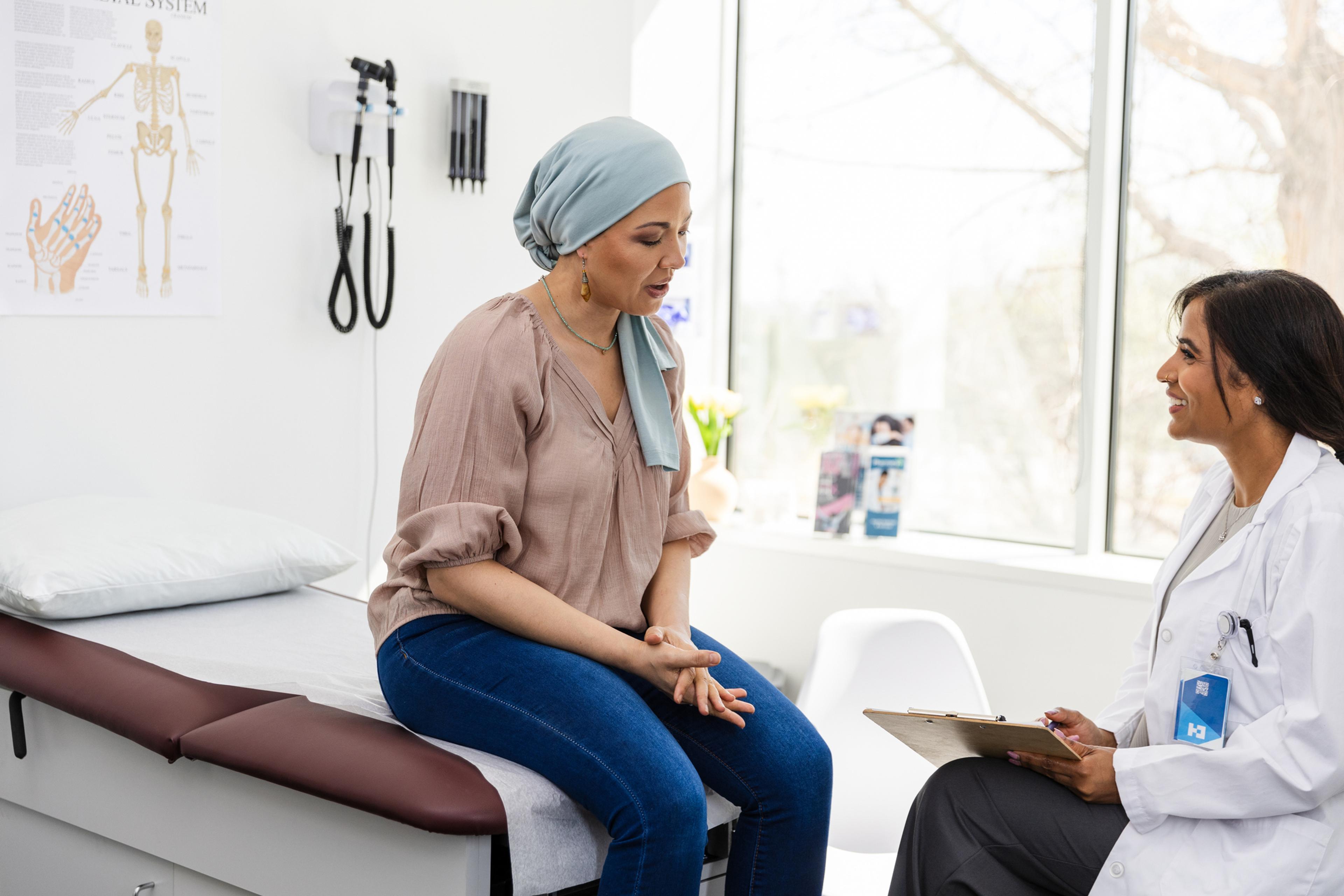How Breast Cancer Impacts a Woman's Body Image and Identity
Dr. Crystal Lee, M.D.
| 3 min read
Crystal R. Lee, MD, FACP, CPC-A, CHCQM is a Medical ...

Key Takeaways
- During breast‑cancer treatment, a majority of women report dissatisfaction with their bodies due to surgery scars, hair loss, weight changes and fatigue — factors that can trigger grief and identity loss.
- About one‑quarter of women with breast cancer experience depression, which can be compounded by guilt over reduced caregiving, work and social roles.
- Establishing soothing routines, focusing on movement rather than appearance and openly discussing feelings with providers, support groups or partners are effective ways to rebuild a healthy body image and emotional well‑being.
Nearly 280,000 women receive a breast cancer diagnosis every year, according to the U.S. Centers for Disease Control and Prevention.
Common cancer treatments include chemotherapy, radiation and surgery. This can mean hair loss and/or a mastectomy. Hair loss and surgery can change how women feel about their bodies. Studies have found 56% to 92% of women feel dissatisfied with their body image during breast cancer treatment.
How the body can change during breast cancer
There are many types of treatments for breast cancer, depending on the type and stage. Surgery can involve removing part or all of one or both breasts, and women may choose to have reconstructive surgery at the same time or later. These surgeries typically leave scars.
Chemotherapy and radiation can cause physical discomfort, fatigue, changes in weight and hair loss. While some women choose to wear wigs during this time, others wear head wraps or scarves.
Going through a life-threatening illness and intense treatment is challenging enough, but all these decisions and changes can make it difficult for a woman to feel connected to her body. Physical changes can lead to grief and identity loss. Body image dissatisfaction is linked to psychological distress, a lower quality of life and difficulty with social interactions.
How breast cancer can affect mental health
Struggling with mental health is common during breast cancer. About 25% of women with breast cancer experience depression. Feelings of hopelessness or despair, loss of interest in hobbies and isolation can compound other emotional challenges during cancer treatment and recovery.
Additionally, many women may feel like they are supposed to continue their previous levels of caretaking, work and social engagement. Experiencing guilt because they cannot function as they did prior to the illness is common.
How women can have a healthy body image during breast cancer
Beauty standards and external messages about how women are supposed to look can add another layer of pain. A life-changing illness such as cancer may give women a greater perspective on what matters, but it’s normal to struggle with appearance. It is important not to dismiss or repress feelings of loss and grief.
Body image is personal and different for each person; studies have found personalized approaches for body image and mental health are most effective. Here are a few ways women could focus on their mental and emotional health through the cancer journey:
Create a self-care routine
Doing things that feel good can help women feel better mentally. A skincare routine or hot bath can be soothing. Some women may also want to maintain familiar routines such as the makeup or clothing they enjoyed pre-diagnosis, while others may prefer a completely new look.
Focus on movement rather than appearance
Women can find new ways to feel good in their body. As they are able, it can be helpful for women to try exercises such as yoga or dance to move and connect with their bodies. Gaining physical strength can also help cancer survivors appreciate their bodies and feel more resilient.
Additionally, engaging in activities and relationships women enjoy can provide meaning and increase self-worth beyond appearance.
Talk about their feelings
It’s important for women to talk to their oncology team or primary care provider about these feelings. Health care providers may suggest talking to a mental health professional or joining a support group of other cancer survivors who are experiencing similar emotions.
Sharing these emotions with loved ones can also help women remain connected with loved ones. As breast cancer can affect intimacy, talking with their partner could restore some of these feelings of connectedness.
Learn more about mental health at bcbsm.com/mentalhealth.
Crystal Lee is a medical director of Clinical Decision Support at Blue Cross Blue Shield of Michigan. For more health tips and information, visit MIBlueDaily.com.
Image: Getty Images
Related:





